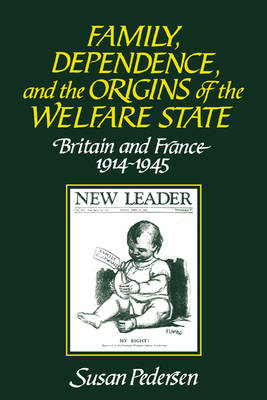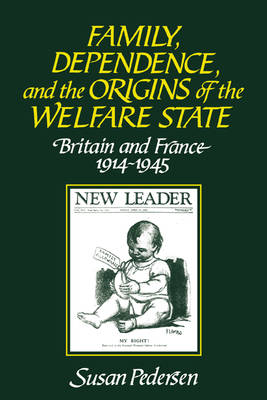
- Afhalen na 1 uur in een winkel met voorraad
- Gratis thuislevering in België vanaf € 30
- Ruim aanbod met 7 miljoen producten
- Afhalen na 1 uur in een winkel met voorraad
- Gratis thuislevering in België vanaf € 30
- Ruim aanbod met 7 miljoen producten
Zoeken
Family, Dependence, and the Origins of the Welfare State
Britain and France, 1914 1945
Susan Pedersen
Paperback | Engels
€ 99,45
+ 198 punten
Omschrijving
The development of European welfare states in the first half of this century has often been seen as a response to the rise of class politics. This study of social policies in Britain and France between 1914 and 1945 contests this interpretation. It argues, by contrast, that early policymakers and social reformers were responding equally to a perceived crisis of family relations and gender roles. The institutions they developed continue to structure the welfare state as it exists today. This book is innovative in the range and scope of its research, its comparative focus, and its argument, which poses a challenge to older class-based interpretations of the development of the welfare state. It will be of interest to scholars of European history and politics, as well as to those interested in social policy and women's studies.
Specificaties
Betrokkenen
- Auteur(s):
- Uitgeverij:
Inhoud
- Aantal bladzijden:
- 496
- Taal:
- Engels
Eigenschappen
- Productcode (EAN):
- 9780521558341
- Verschijningsdatum:
- 25/08/1995
- Uitvoering:
- Paperback
- Formaat:
- Trade paperback (VS)
- Afmetingen:
- 153 mm x 229 mm
- Gewicht:
- 653 g

Alleen bij Standaard Boekhandel
+ 198 punten op je klantenkaart van Standaard Boekhandel
Beoordelingen
We publiceren alleen reviews die voldoen aan de voorwaarden voor reviews. Bekijk onze voorwaarden voor reviews.







